Related Research Articles

The proteome is the entire set of proteins that is, or can be, expressed by a genome, cell, tissue, or organism at a certain time. It is the set of expressed proteins in a given type of cell or organism, at a given time, under defined conditions. Proteomics is the study of the proteome.
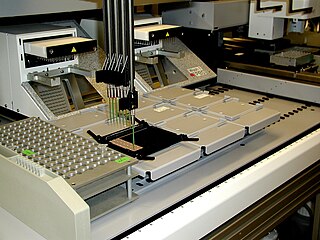
Proteomics is the large-scale study of proteins. Proteins are vital parts of living organisms, with many functions, for example composing the structural fibers of muscle to the enzymes that catalyze the digestion of food to synthesizing and replicating DNA. In addition, other kinds of proteins include antibodies that protect an organism from infection, and hormones that send important signals throughout the body.
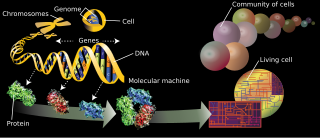
The branches of science known informally as omics are various disciplines in biology whose names end in the suffix -omics, such as genomics, proteomics, metabolomics, metagenomics, phenomics and transcriptomics. Omics aims at the collective characterization and quantification of pools of biological molecules that translate into the structure, function, and dynamics of an organism or organisms.

A protein isoform, or "protein variant", is a member of a set of highly similar proteins that originate from a single gene or gene family and are the result of genetic differences. While many perform the same or similar biological roles, some isoforms have unique functions. A set of protein isoforms may be formed from alternative splicings, variable promoter usage, or other post-transcriptional modifications of a single gene; post-translational modifications are generally not considered. Through RNA splicing mechanisms, mRNA has the ability to select different protein-coding segments (exons) of a gene, or even different parts of exons from RNA to form different mRNA sequences. Each unique sequence produces a specific form of a protein.
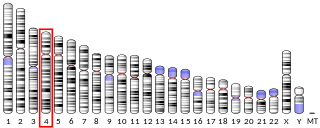
Cathepsin O is an enzyme that in humans is encoded by the CTSO gene.

Rudolf Aebersold is a Swiss biologist, regarded as a pioneer in the fields of proteomics and systems biology. He has primarily researched techniques for measuring proteins in complex samples, in many cases via mass spectrometry. Ruedi Aebersold is a professor of Systems biology at the Institute of Molecular Systems Biology (IMSB) in ETH Zurich. He was one of the founders of the Institute for Systems Biology in Seattle, Washington, where he previously had a research group.

Amelogenin, Y isoform is a protein that in humans is encoded by the AMELY gene. AMELY is located on the Y chromosome and encodes a form of amelogenin. Amelogenin is an extracellular matrix protein involved in biomineralization during tooth enamel development.
The Human Proteome Organization (HUPO) is an international consortium of national proteomics research associations, government researchers, academic institutions, and industry partners. The organization was founded in June 2001 and it promotes the development and awareness of proteomics research, advocates on behalf of proteomics researchers throughout the world, and facilitates scientific collaborations between members and initiatives. Ultimately, it is organized to gain a better and more complete understanding of the human proteome.

Serine/threonine-protein kinase PCTAIRE-3 is an enzyme that in humans is encoded by the PCTK3 gene.

Probable ATP-dependent RNA helicase DDX56 is an enzyme that in humans is encoded by the DDX56 gene.

Sodium/potassium-transporting ATPase subunit beta-3 is an enzyme that in humans is encoded by the ATP1B3 gene. ATP1B3 has also been designated as CD298.
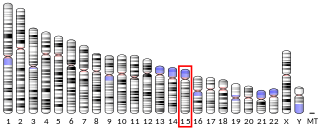
Probable ribosome biogenesis protein RLP24 is a protein that in humans is encoded by the RSL24D1 gene.
In proteomics, GPM stands for "Global Proteome Machine". It is a web-based, open source user interface for analyzing and displaying protein identification data. It was originally designed by Rob Craig and Ron Beavis and first released in 2003. The interface creates a series of web browser page views of tandem mass spectrometry data that has been assigned to protein sequences. The underlying data documents are stored in BIOML format files.
Marc R. Wilkins is an Australian scientist who is credited with the defining the concept of the proteome. Wilkins is a Professor in the School of Biotechnology and Biomolecular Sciences at the University of New South Wales, Sydney.
The Human Protein Atlas (HPA) is a Swedish-based program started in 2003 with the aim to map all the human proteins in cells, tissues and organs using integration of various omics technologies, including antibody-based imaging, mass spectrometry-based proteomics, transcriptomics and systems biology. All the data in the knowledge resource is open access to allow scientists both in academia and industry to freely access the data for exploration of the human proteome. In November 2021, version 21 was launched. A lot of new data and content have been added and the resource now includes ten separate sections with complementary information about all human proteins. All data has been updated on the approximately 15 million individual web pages. The Human Protein Atlas program has already contributed to several thousands of publications in the field of human biology and disease and was selected by the organization ELIXIR as a European core resource due to its fundamental importance for a wider life science community. The HPA consortium is funded by the Knut and Alice Wallenberg Foundation.
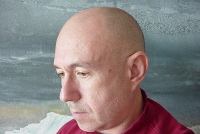
Ronald Charles Beavis is a Canadian protein biochemist, who has been involved in the application of mass spectrometry to protein primary structure, with applications in the fields of proteomics and analytical biochemistry. He has developed methods for measuring the identity and post-translational modification state of proteins obtained from biological samples using mass spectrometry. He is currently best known for developing new methods for analyzing proteomics data and applying the results of these methods to problems in computational biology.
Zeng Rong is a Chinese biochemist researching and developing technology for proteomics research. She is currently a professor at the Institute of Biochemistry and Cell Biology at the Shanghai Institutes for Biological Sciences.
Mathias Uhlén is a Swedish biologist, biotechnologist, and Professor of Microbiology at Royal Institute of Technology (KTH), Stockholm. His research interests cover antibody engineering, proteomics and precision medicine.
Young-Ki Paik is the director of the Yonsei Proteome Research Center in Seoul, Korea. In 2009, he was chosen President of the Human Proteome Organization (HUPO).
Catherine E. Costello is the William Fairfield Warren distinguished professor in the Department of Biochemistry, Cell Biology and Genomics, and the director of the Center for Biomedical Mass Spectrometry at the Boston University School of Medicine.
References
- ↑ Legrain, P.; Aebersold, Rued; Kumar, Bala; Beretta, Laura; Costello, Catherine E.; Borchers, Christoph H.; Corthals, Garry L. (29 April 2011). "The Human Proteome Project: Current State and Future Direction". Molecular & Cellular Proteomics . 10 (7): M111.009993. doi:10.1074/mcp.M111.009993. PMC 3134076 . PMID 21742803.
- ↑ "HUPO (Human Proteome Organization) 1st World Congress". Mol Cell Proteomics . American Society for Biochemistry and Molecular Biology. 9 (9): 651–752. September 2002. PMID 12474872.
{{cite journal}}: CS1 maint: url-status (link) - ↑ Omenn, G.S. et al. Overview of the HUPO Plasma Proteome Project. Proteomics. 5, 3226-45 (2005).
- ↑ He, F. Human liver proteome project: plan, progress, and perspectives. Mol Cell Proteomics. 4, 1841-8 (2005).
- ↑ Hamacher, M. et al. HUPO Brain Proteome Project: toward a code of conduct. Mol Cell Proteomics. 7, 457 (2008).
- ↑ Yamamoto, T., Langham, R.G., Ronco, P., Knepper, M.A. & Thongboonkerd, V. Towards standard protocols and guidelines for urine proteomics. Proteomics. 8, 2156-9 (2008).
- ↑ Uhlen, M. & Ponten, F. Antibody-based proteomics for human tissue profiling. Mol Cell Proteomics. 4, 384-93 (2005).
- ↑ Orchard, S. et al. Current status of proteomic standards development. Expert Rev Proteomics. 1, 179-83 (2005).
- ↑ Archakov A, et al. The Moscow HUPO Human Proteome Project workshop. Mol Cell Proteomics. 8:2199-200 (2009).
- ↑ Baker MS. Building the 'practical' human proteome project - the next big thing in basic and clinical proteomics. Curr Opin Mol Ther. 2009 11:600-2 (2009).
- ↑ Editorial, The call of the human proteome. Nat Methods. 7:661 (2010).
- ↑ Rabilloud T., et al. Is a gene-centric human proteome project the best way for proteomics to serve biology? Proteomics. 10:3067-72 (2010).
- ↑ Editorial. A Gene-centric Human Proteome Project. Mol Cell Proteomics. 9:427-429 (2010).
- ↑ Paik, Y-K., et al. A Chromosome-Centric Human Proteome Project to Characterize the Sets of Proteins Encoded in the Genome. Nature Biotech.30: 221–3(2012).
- ↑ Aebersold R., et al. The Biology/Disease-driven Human Proteome Project (B/D-HPP): Enabling Protein Research for the Life Sciences Community. J. Proteome Res. 12:23–27 (2013).
- ↑ Paik Y-K., et al. Genome-wide Proteomics, Chromosome-centric Human Proteome Project (C-HPP), Part II. J. Proteome Res. 13:1–4 (2014).
- ↑ Omenn GS., et al. Metrics for the Human Proteome Project 2015: Progress on the Human Proteome and Guidelines for High-Confidence Protein Identification. J Proteome Res. 14:3452-60 (2015).
- ↑ Horvatovich P., et al. A Quest for Missing Proteins: update 2015 on Chromosome-Centric Human Proteome Project. J Proteome Res. Jun 15 (2015).
- ↑ Baker, MS; et al. (2017). "Accelerating the search for the missing proteins in the human proteome". Nature Communications. 8: 14271. Bibcode:2017NatCo...814271B. doi:10.1038/ncomms14271. PMC 5286205 . PMID 28117396.
- ↑ Southan, Christopher (2017-04-07). "Last rolls of the yoyo: Assessing the human canonical protein count". F1000Research. 6: 448. doi:10.12688/f1000research.11119.1. ISSN 2046-1402. PMC 5428527 . PMID 28529709.
- ↑ Omenn, Gilbert S.; Lane, Lydie; Overall, Christopher M.; Paik, Young-Ki; Cristea, Ileana M.; Corrales, Fernando J.; Lindskog, Cecilia; Weintraub, Susan; Roehrl, Michael H. A.; Liu, Siqi; Bandeira, Nuno; Srivastava, Sudhir; Chen, Yu-Ju; Aebersold, Ruedi; Moritz, Robert L.; Deutsch, Eric W. (3 December 2021). "Progress Identifying and Analyzing the Human Proteome: 2021 Metrics from the HUPO Human Proteome Project". Journal of Proteome Research. 20 (12): 5227–5240. doi:10.1021/acs.jproteome.1c00590. PMID 34670092. S2CID 239050778.